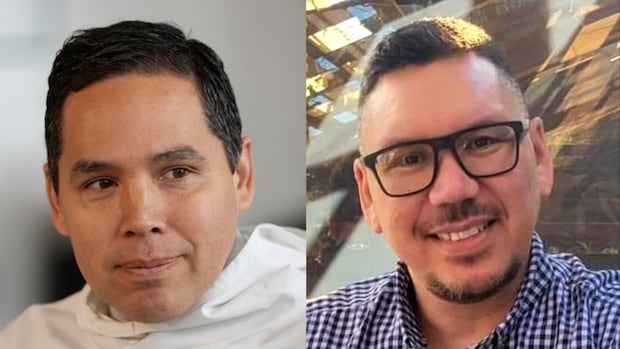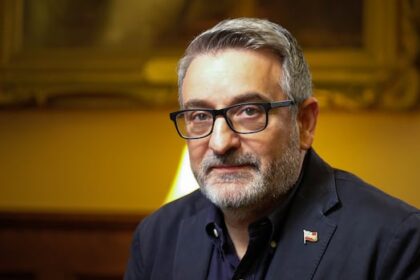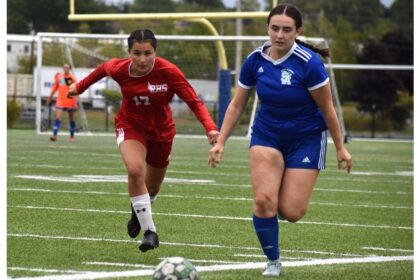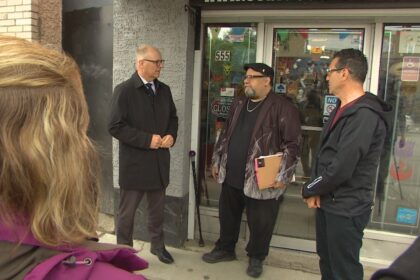North·NewCanada’s national Inuit organization will vote for its leader next week, and two people are vying for the job — Natan Obed, seeking reelection for a fourth term as president of Inuit Tapiriit Kanatami (ITK), and Kevin Kablutsiak, a political newcomer. Natan Obed seeking re-election to 4th term as president, running against political newcomer Kevin KablutsiakCBC News · Posted: Sep 14, 2025 4:00 AM EDT | Last Updated: 30 minutes agoNatan Obed, left, and Kevin Kablutsiak are running to be president of Inuit Tapiriit Kanatami. The election will be held at the organization’s annual general meeting in Cambridge Bay, Nunavut, on Sept. 18. (Darren Calabrese/The Canadian Press/Submitted by Kevin Kablutsiak)Canada’s national Inuit organization will vote for its leader next week, and two people are vying for the job — Natan Obed, seeking re-election for a fourth term as president of Inuit Tapiriit Kanatami (ITK), and Kevin Kablutsiak, a political newcomer. ITK advocates as the national voice of Inuit across Canada. Its president is elected to a three-year term by representatives of ITK’s four director organizations: the Inuvialuit Regional Corporation, Nunavut Tunngavik Inc., Makivik Corporation, and the Nunatsiavut government. Kablutsiak said he started thinking seriously about running to lead the organization about a year ago, at the encouragement of others. At the time he had recently become the managing editor for CBC North, a job he left earlier this year. He has also worked in marketing for Canadian North and First Air, and communications for ITK and Nunavut Tunngavik. “The timing seemed to be right,” Kablutsiak said, of seeking the ITK presidency.”I have spent pretty much my life listening and learning and helping others to tell their stories. And I want to ensure that the national voice of Inuit continues to reflect the hopes and the concerns and the strengths of our people.”Kablutsiak describes his leadership style as “grounded in humility, and collaboration,” and that his candidacy is “about service.” “When I decided that I was going to do this, I wanted to make sure that this really wasn’t going to be about my personal ambition or politics.”He said that if elected, he will commit to visiting the different Inuit regions in Canada within his first 100 days, to meet with local leaders and community members, and hear their priorities and most pressing issues. “Those might be food security, that might be self-determination or sovereignty, climate change, environmental issues,” he said.”My commitment would be to collaborate and to be in partnership with Inuit from across Canada.”Kablutsiak said housing is a key issue, as is language. He said Inuktut is “very close to my heart.””It is my first language and I use it everyday,” he said. “In all the work that I have done, I have prioritized Inuktut. I have done what I can do to help advance it.”Obed ‘reinvigorated’ to run againNatan Obed was first elected ITK president in 2015, after working for both the Labrador Inuit Association, and Nunavut Tunngavik. He says he hadn’t imagined he’d be seeking a fourth term as ITK president but said “political instability” in recent months, and the election of a new prime minister, have made him want to stay on. “I am reinvigorated to continue on in this role to serve Inuit and to use the experience that I now have for the betterment of all of our Inuit regions,” he said.”We’re living now at a time of threat, especially from foreign nation states talking about taking over Canada, or considering the Arctic as the strategic point globally where we have to assert our sovereignty.”Obed said housing is a key issue for him. He referred to the federal Inuit Nunagat Housing Strategy, developed with ITK, that he feels has not been implemented “to its fullest extent.””Right now we don’t have enough people who own their own homes. We have limited housing stock and we have also the strains for operation and maintenance for the existing housing stock that we have,” he said.Obed said mental health and suicide prevention also need more attention. “We understand the issue but not well enough,” he said. Obed describes working with other leaders and says he approaches those relationships with “humility, but also … sincerity.””I bring all of the lived experience from my life, all of the conversations that I’ve had with Inuit across Inuit Nunangat, and I try to provide the most empathetic, factual and sincere positions that I possibly can on behalf of Inuit,” he said.Obed says he does not speak Inuktitut fluently but he has been taking language courses through most of his adult life. He says he can “passively listen and understand,” but is less confident using the language in public settings.Still, he says he recognizes the importance of language to Inuit.”I want to uphold that and champion that no matter what role or what position that I’m in,” he said.The election will happen on Sept. 18, during ITK’s annual general meeting in Cambridge Bay, Nunavut. Each candidate will make a speech to the delegates and answer questions before the vote is held. With files from Lissie Anaviapik
Friday, 6 Feb 2026
Canada – The Illusion
Search
Have an existing account?
Sign In
© 2022 Foxiz News Network. Ruby Design Company. All Rights Reserved.
You May also Like
- More News:
- history
- Standing Bear Network
- John Gonzalez
- ᐊᔭᐦᑊ ayahp — It happened
- Creation
- Beneath the Water
- Olympic gold medal
- Jim Thorpe
- type O blood
- the bringer of life
- Raven
- Wás’agi
- NoiseCat
- 'Sugarcane'
- The rivers still sing
- ᑲᓂᐸᐏᐟ ᒪᐢᑿ
- ᐅᑳᐤ okâw — We remember
- ᐊᓂᓈᐯᐃᐧᐣ aninâpêwin — Truth
- This is what it means to be human.
- Nokoma











